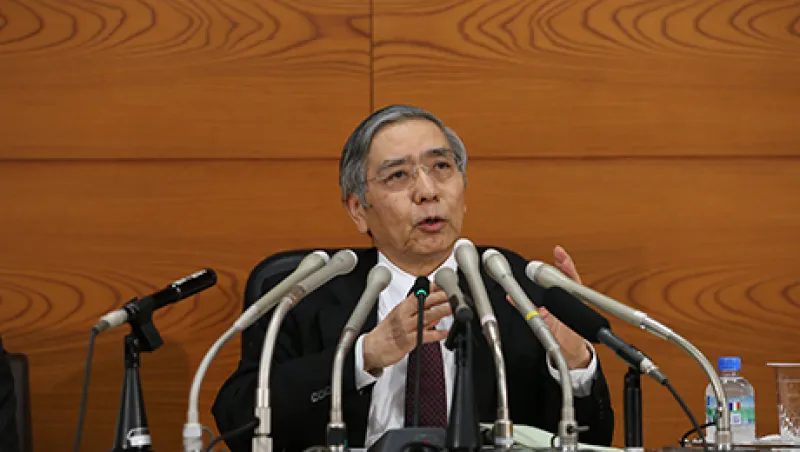In a 5 to 4 vote, the policy board of the Bank of Japan moved to a negative interest rate environment on Friday during their monthly meeting. Under the new, multi-tiered regime, excess reserves held by banks will be debited 0.1 percent and BOJ policymakers indicate a willingness to lower the bar further if it does not achieve the desired effect. The move to push financial institutions to deploy capital sparked a rally in financial assets globally as the yen slid against the dollar. The policy, which goes into effect in mid-February, will mark a new chapter in the Japanese central bank’s unprecedented attempts to reignite demand the country’s moribund economy. With economic data suggesting that BOJ actions to date have supported financial asset prices to a greater degree than growth in the underlying economy, Governor Haruhiko Kuroda and his colleagues are facing an uphill battle.
Prices rise in Europe. Consumer inflation data released by Eurostat for the common currency region this morning indicated that consumer prices rose in January with core levels, excluding food and fuel, rising by an annualized 1 percent. Headline inflation nudged up 0.4 percent for the month despite recent sharp price declines in oil.
Icahn succeeds in breaking up Xerox. On Friday Xerox Corp., a target of activist shareholder Carl Icahn, announced that it will acquiesce to critics and split into two separate publicly traded companies. The move will see the company’s business service division, built through the 2010 acquisition of Affiliated Computer Services, spun out as a separate entity.
Chinese steel production declined in 2015. Data released by the China Iron and Steel Association on Friday indicated a 2.3 percent decline in steel production by volume in 2015, the first annual decline in more than three decades. At more than 800 million metric tons, Chinese producers still account for roughly half of global steel output.
OPEC has no plans to meet with Russian leaders. After Russian Energy Minister Alexander Novak stated a willingness to meet with officials from the Organization of the Petroleum Exporting Countries, multiple media outlets reported Friday that the group has no plans to open talks with Moscow. The Russian government derives more than half its annual revenue from oil and natural-gas production and now faces budgetary shortfalls that have helped drive the ruble to all-time lows versus the dollar in recent weeks.
Tapering household spending weighs on US GDP. Initial Commerce Department estimates for Q4 gross domestic product released today was slightly weaker than consensus forecasts at an annualized pace of 0.7 percent. During the final three months of the year consumer demand moderated somewhat with headline household spending rising at a pace of 2.2 percent.





